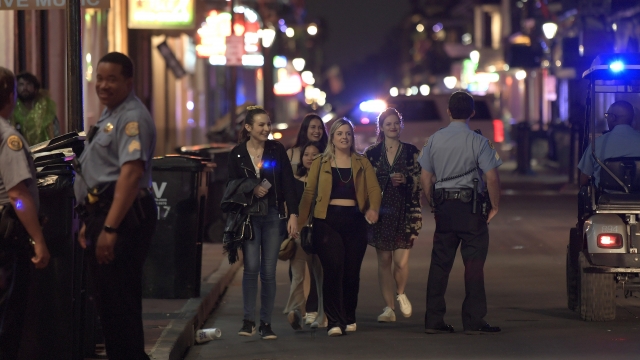"It may have been that the millennial generation — our largest generation, our future generation — that will carry us through for the next multiple decades. There may be a disproportional number of infections among that group. And so, even if it's a rare occurrence, it may be seen more frequently in that group," said White House Coronavirus Task Force coordinator Dr. Deborah Birx.
Health officials from the White House on down to mayors are singling out young people, specifically millennials, as crucial to curbing the coronavirus pandemic.
"Even though millennials are the group that are least likely to be badly affected by this virus and experience the worst adverse health outcomes, that doesn't mean that they don't have ... symptoms and [are not] carriers or are vectors of the disease. And it's so critical that recognition of that potential risk transfer is there within, not just millennials but Gen Z. Anyone — anyone who is healthy and not considered part of the vulnerable populations — needs to realize that they are still vectors potential vectors of disease," said Dr. Sweta Chakraborty.
Millennials are a particularly important generation because, well, there are more of them. The group, which includes those between the ages 20 and 38, now make up the largest adult population in the United States.
In recent days, local officials across the country have shut down bars, restaurants and beaches after scenes emerged of millennials and Gen Zers seemingly ignoring the CDC's recommendation that people keep a distance of approximately 6 feet from others. But public health experts say the benefits linked with "social distancing" only go so far.
"It's really important to take social distancing seriously. That being said, it is up to the government to also cocoon those that are more vulnerable and to ensure that they are protected, because human behavior is complex, and despite our best intentions, and even those millennials who have right and good intentions, there's still ways for these microorganisms to slip through the cracks," said Chakraborty.
It's a point White House health official Seema Verma echoed to Newsy in a recent interview.
"I'm going to put a special shoutout to all the millennials out there: I understand that it's not always fun to stay at home. You may want to hang out with your friends, go to a restaurant or bar. But the recommendations that we're making are for people to stay at home. The reality is, it's not about you, but it is about every single American and every American coming together and abiding by the guidelines that we've put out, because that is what's going to help us slow the spread of the virus and hopefully prevent a situation where we have to take more drastic measures," said Seema Verma, the administrator for the Centers for Medicare & Medicaid Services.
Contains footage from CNN.


